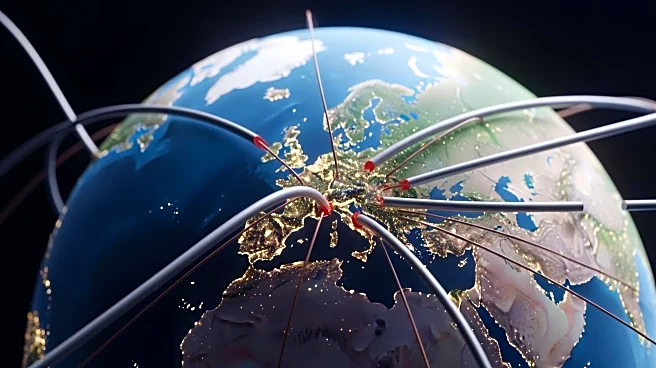What's Happening?
The European Parliament's energy committee has endorsed a proposal to ban imports of Russian oil and gas into the European Union for a year, starting January 1, 2026. This decision, supported by 83 votes
in favor, 9 against, and one abstention, includes limited exceptions for existing contracts. Short-term contracts can continue until June 17, 2026, while long-term contracts signed before June 17, 2025, can last until January 1, 2027. The proposal, backed by the committees on industry, research, energy, and international trade, also prohibits the temporary storage of Russian-origin natural gas in EU facilities starting in 2026. The legislation mandates prior customs authorization and verification of the country of production for Russian oil imports, aiming to prevent circumvention through relabeling or 'shadow fleets.'
Why It's Important?
This legislative move marks a significant shift in European energy policy, aiming to reduce dependency on Russian fossil fuels amid geopolitical tensions. The ban is expected to impact the energy market, potentially leading to increased energy prices and supply chain adjustments within the EU. It underscores the EU's commitment to energy diversification and security, while also posing challenges for countries heavily reliant on Russian energy imports. The decision could influence global energy markets, prompting other regions to reconsider their energy sourcing strategies. The enforcement of stringent regulations and penalties for non-compliance highlights the EU's determination to implement this policy effectively.
What's Next?
The European Parliament will present this decision to its plenary chamber during the session from October 20-24, 2025. The almost unanimous support provides a strong mandate for negotiations with the Council. The EU aims to phase out Russian LNG imports by January 2027, further solidifying its stance against Russian energy dependency. The legislation's implementation will require close monitoring to ensure compliance and address any potential loopholes. The EU's approach may prompt reactions from Russia and other global energy players, potentially leading to shifts in international energy alliances and trade dynamics.










